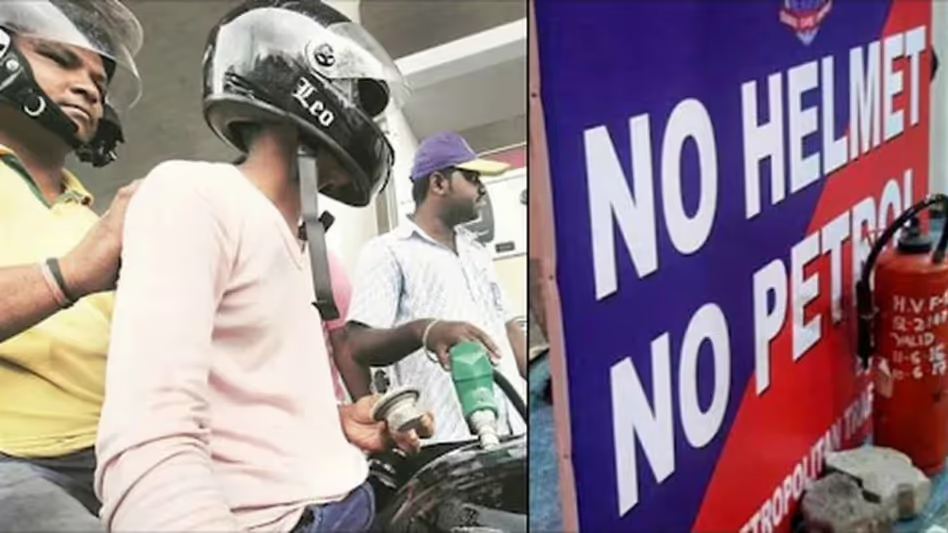Step toward enhancing road safety, the Kamrup District Administration has enforced a “No Seatbelt/Helmet, No Fuel” rule across the district. The rule aims to instill better road discipline, reduce traffic violations, and ultimately decrease the number of accidents on the road. By making seatbelt use in cars and helmet use on two-wheelers a prerequisite for refueling, the district administration intends to send a strong message about the importance of safety measures.
This new regulation applies to all motorists, whether they are driving cars, riding motorcycles, or any other vehicles that require seatbelts or helmets. The initiative takes into account the rising number of accidents and the severe consequences of non-compliance with basic safety protocols. The district administration, recognizing the need for stricter enforcement, decided that the simplest way to enforce these regulations would be to make fuel access dependent on seatbelt and helmet usage.
One of the primary goals of the “No Seatbelt/Helmet, No Fuel” rule is to create a sense of personal responsibility among road users. By ensuring that drivers and riders follow basic safety guidelines before they even begin their journeys, the administration hopes to curb the number of avoidable accidents and fatalities. The initiative is expected to have a profound impact on changing the mindset of the public regarding the importance of wearing seatbelts and helmets.
The Kamrup District Administration is aware of the long-standing culture of non-compliance with road safety rules. Many drivers and riders take safety measures lightly, which often results in tragic accidents. By requiring individuals to adhere to safety measures before even filling up their vehicles, the rule emphasizes that safety cannot be an afterthought. It must be prioritized from the very beginning of a journey.
Fuel station attendants have been instructed to check that all vehicle occupants are wearing seatbelts or helmets before they are allowed to purchase fuel. This new rule serves as an effective deterrent for those who neglect safety protocols. The district authorities have also provided guidance and training to fuel station staff on how to implement the regulation smoothly and ensure that it does not disrupt services.
While the rule is aimed at ensuring safety, it has not been without its share of challenges. Some motorists have expressed their concerns about the inconvenience the rule might cause. For example, individuals who have forgotten to wear a seatbelt or helmet may find themselves in an awkward position when they reach a fuel station. However, the administration has emphasized that these are small sacrifices compared to the potential life-saving benefits of the regulation. It is also expected that the inconvenience will be temporary as people become accustomed to wearing seatbelts and helmets as a matter of habit.
The enforcement of this rule is part of the broader efforts of the Kamrup District Administration to enhance traffic safety and reduce road accidents in the region. Road safety measures have long been a concern, as the district, like many others in the country, faces the challenge of increasing traffic volume, reckless driving, and negligence toward safety norms. By introducing such a unique rule, the administration hopes to spark a change in public behavior and create a safer road environment for everyone.
The initiative has received mixed reactions from the public. While some have welcomed the rule as a positive step toward ensuring safety, others have questioned its practicality, given the enforcement challenges it may present. Regardless of the differing opinions, the Kamrup District Administration has reiterated its commitment to improving road safety and reducing traffic-related incidents.
In the coming weeks, the administration will monitor the effectiveness of the rule and gather feedback from fuel station owners, motorists, and the general public. Based on the feedback, adjustments may be made to ensure the rule’s smooth implementation. The district’s overall objective remains clear: to make wearing seatbelts and helmets a habit, ensuring that these small but crucial actions become part of the daily routine for all road users.
As the “No Seatbelt/Helmet, No Fuel” rule continues to gain traction, the Kamrup District Administration is optimistic that it will encourage a culture of road safety, where responsible driving becomes the norm, not the exception. The rule serves as a reminder that safety should always come first, and every journey begins with the commitment to protect oneself.

